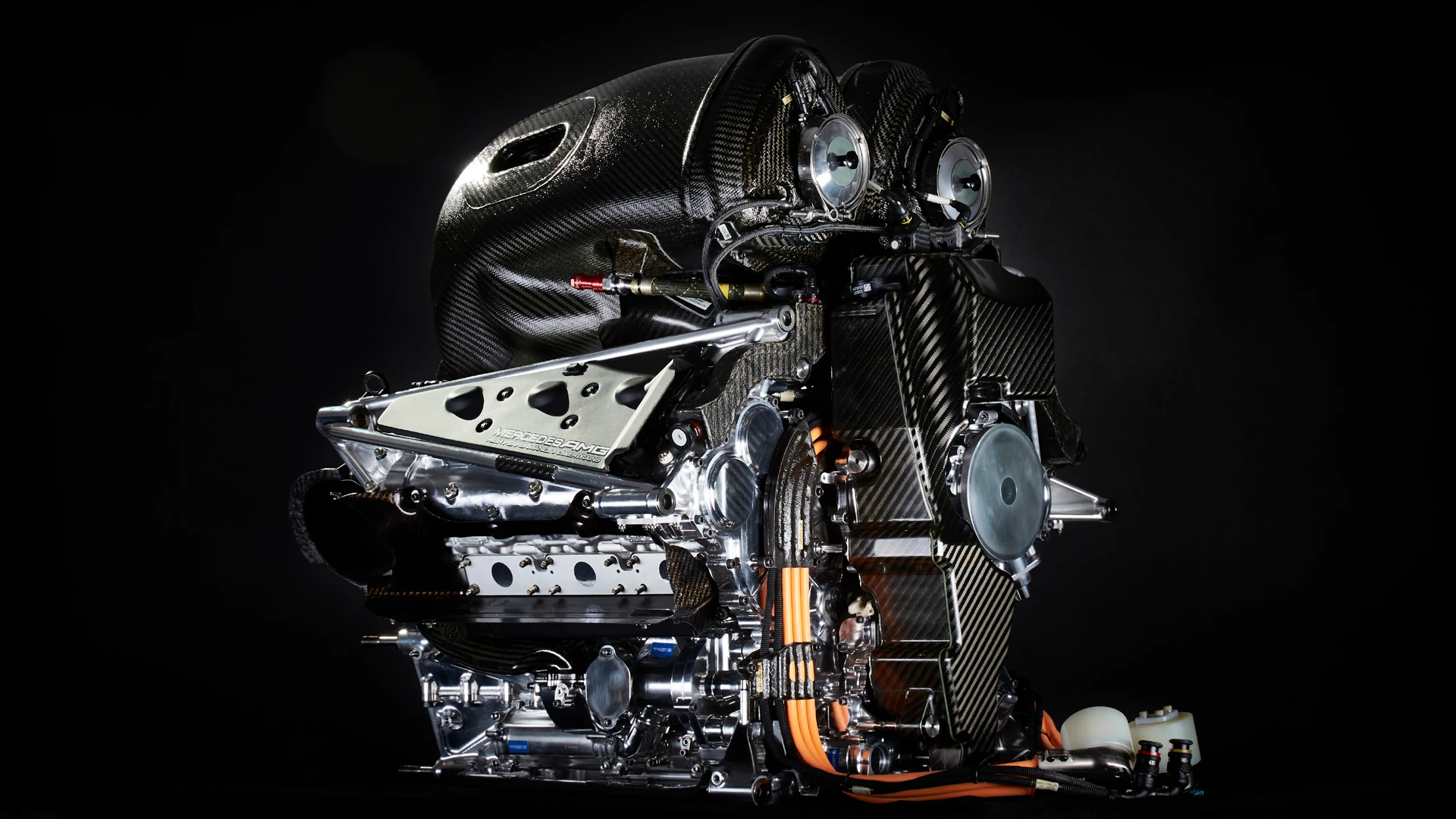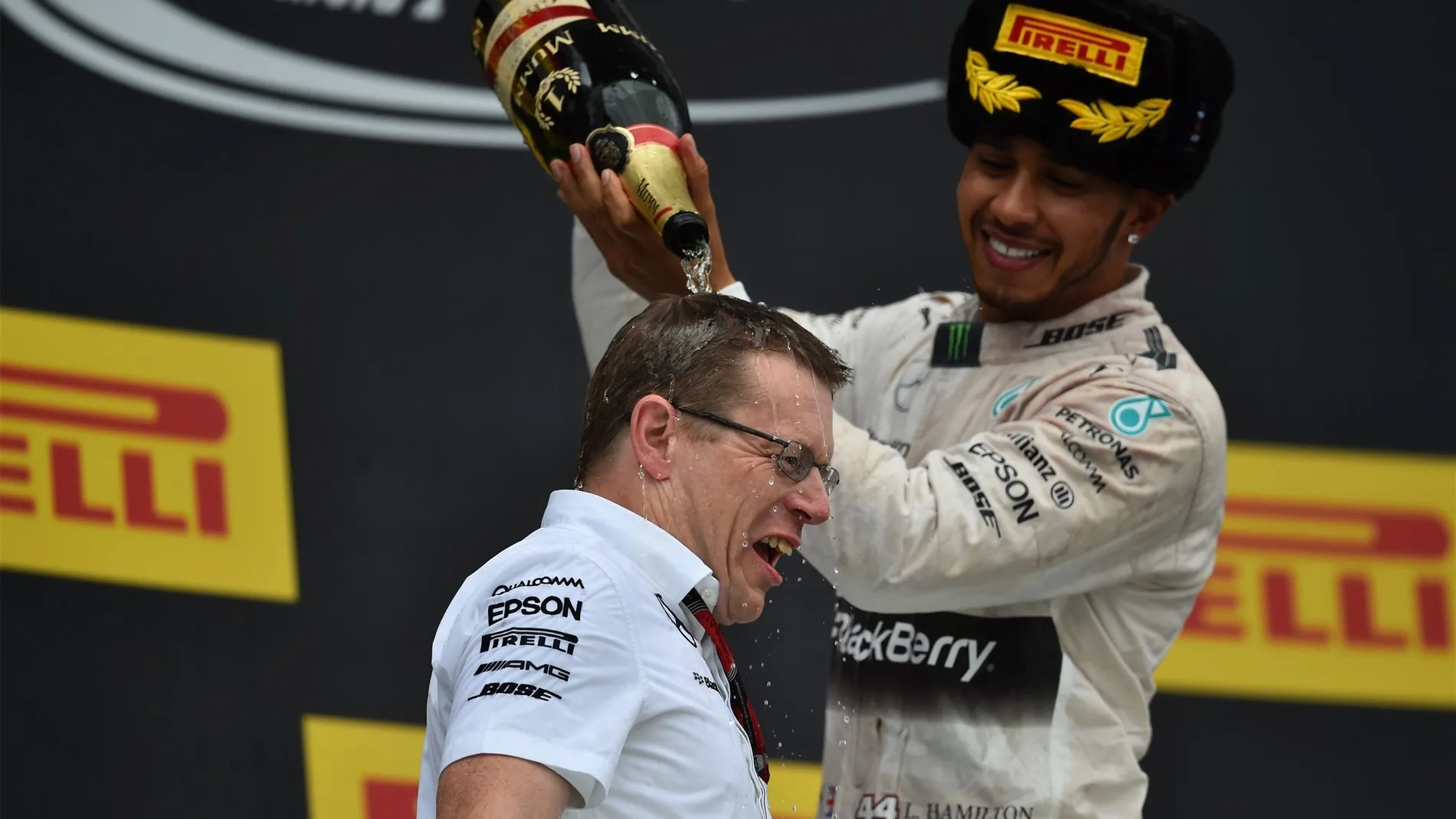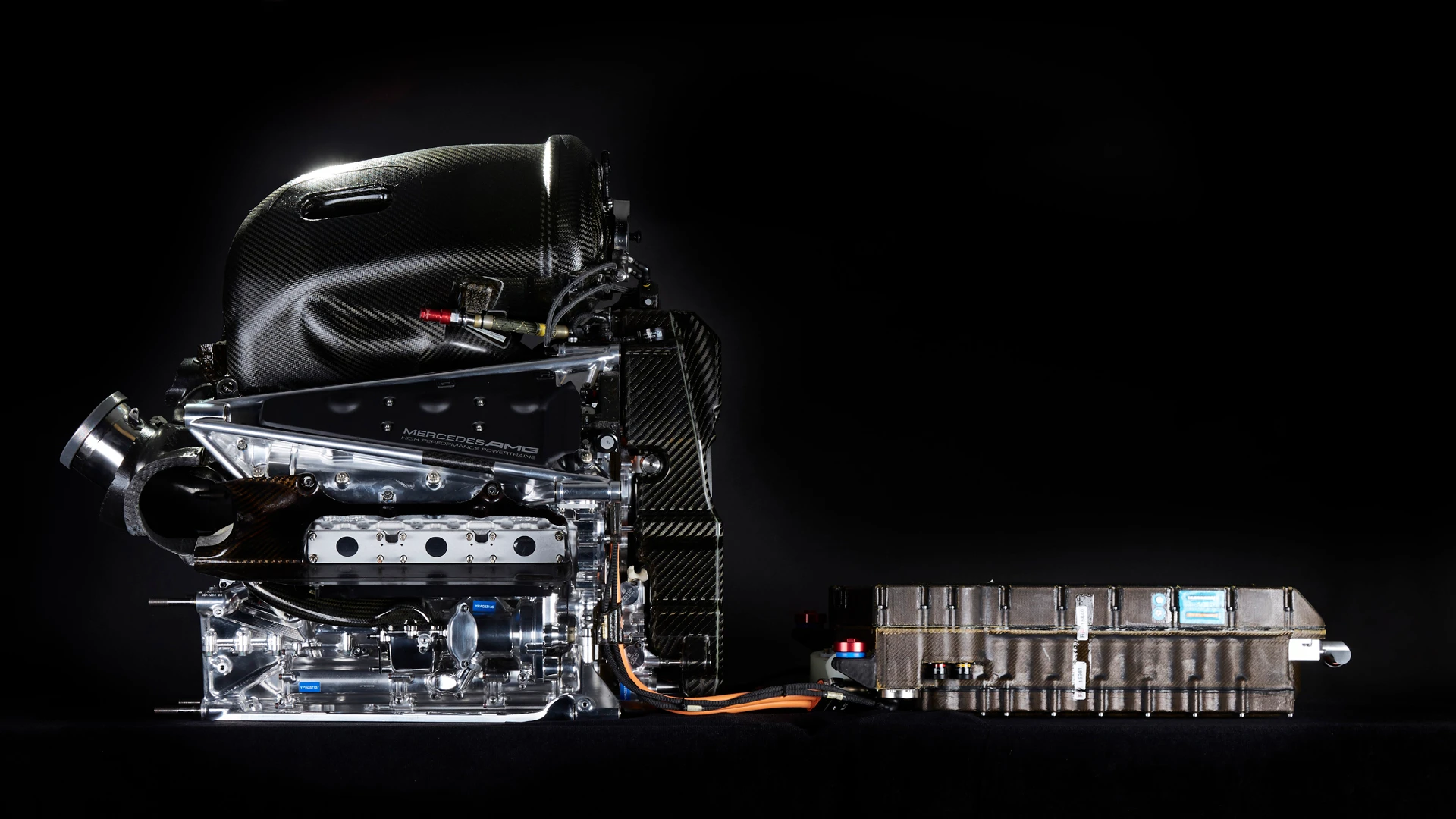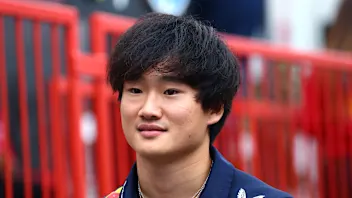As world champions Mercedes reveal their 2016 challenger, the F1 W07 Hybrid, the man responsible for its power unit - Andy Cowell, Managing Director, Mercedes AMG High Performance Powertrains - talks us through the challenges the team face for their title defence…

These power units really are incredible feats of engineering
Q: Mercedes has set the standard so far in the hybrid era. Where has the focus been over the winter to maintain that level of performance?
Andy Cowell: It's been more of the same. To get the performance out of this new generation of power units, you need to chase efficiency. That's both combustion efficiency and efficiency in the various energy transition steps - i.e. MGU-H, MGU-K, turbocharger, power electronics and batteries. We're constantly working on every single piece of the puzzle to improve performance at the crankshaft, while also seeking to ensure we don't suffer any of the problems we had last year with reliability. So, it's about getting down to the root cause of issues and making sure that everything is robust across our whole process, as much as extracting performance.
Q: The technology in these power units is a story which has perhaps not been told as well as it could have been so far. Just how impressive are they?
AC: These power units really are incredible feats of engineering. We're now running at more than 47% thermal efficiency and producing historic highs of power - and all with an ICE restricted to consuming fuel at a rate of just 100kg/hr. The old-fashioned, naturally aspirated engines peaked at 29% thermal efficiency during the V8 era - while the last time we saw these levels of power in Formula One was back in 2005, with a V10 that guzzled fuel at a whopping 194kg/hr. To halve the fuel flow rate for the same amount of power is quite something.
Q: There are 32 development tokens available to spend across the winter and during in-season development. What areas have been the focus of your development?
AC: 32 tokens is quite a lot, so we haven't had to restrict any of our development activity to a specific area. Anything which could yield a decent efficiency improvement - and therefore a decent performance improvement - has been explored and we're now working to make sure our package is sufficiently durable in time for Melbourne.

We're constantly working on every single piece of the puzzle to improve performance
Q: An extra two races on the calendar means an increased power unit allowance for the season ahead. How will this affect your approach to the season?
AC: On the face of it, an increased allocation of power units would seem to give manufacturers an advantage, in that each unit is required to complete fewer races, thereby putting less pressure on the life cycle of different components. But the reality is that our durability targets have remained the same. Our target is to make sure that each power unit can last for at least five races, meaning that theoretically we only need to use four per driver, across the season. We believe this gives us a good opportunity to react if we have a reliability problem - or potentially to use the extra units to our advantage for a performance enhancement at key races.
Q: With in-season development for 2015 only confirmed late in the day, HPP were able to pull forward 2016 development work into the experimental engine introduced in Monza. How beneficial has that proven to be for all the teams running the Mercedes-Benz power unit in 2016?
AC: The upgrade that we introduced in Monza last year took a huge amount of effort from the factory at Brixworth and we only had enough resource to supply the works team with the latest spec at that time. However, that is now paying off for every team with Mercedes power, as we've managed to build on that development work through the autumn and winter period. Now, all our customers are getting an improved package that is exactly the same specification as the works team. All eight Mercedes powered cars will have exactly the same hardware and performance potential come Melbourne - which is a good step for everyone.

All our customers are getting an improved package that is exactly the same specification as the works team
Q: Noise has been a hot topic since the new power unit formula was introduced in 2014. What's changing in 2016 to pump up the volume and will this have any effect on performance?
AC: We've been conscious since the start of the Hybrid era in 2014 that the volume has diminished for those up in the grandstands as well as those watching at home. This is down to both the nature of a turbocharged engine and the recycling of waste energy in the exhaust system. The FIA therefore undertook an interesting and thorough investigation to analyse noise in the tailpipe and investigate what could be done to increase noise without impacting performance or efficiency. What they spotted is that the waste gate fed into the tailpipe. So, when the waste gate is not open, it's a dead end. It then becomes a side branch resonator - or effectively a silencer - on the tailpipe. That design has now been removed, so we are left with a nice clean pipe without any silencing points, which should improve the noise of the power unit.
Q: 2016 sees a new face on the Mercedes-Benz Formula One customer roster - Manor Racing. How has that relationship been developing so far?
AC: Manor Racing is a new customer team for us this year. They're a small team but a very efficient one, with a very pragmatic approach. We have a very detailed integration manual with instructions on how to fit the power unit, how best to use it and likewise what's not recommended, so we've been working closely with them to ensure a seamless integration. They've been great to work with and we're looking forward to seeing their progress through winter testing and into the season.
Next Up





